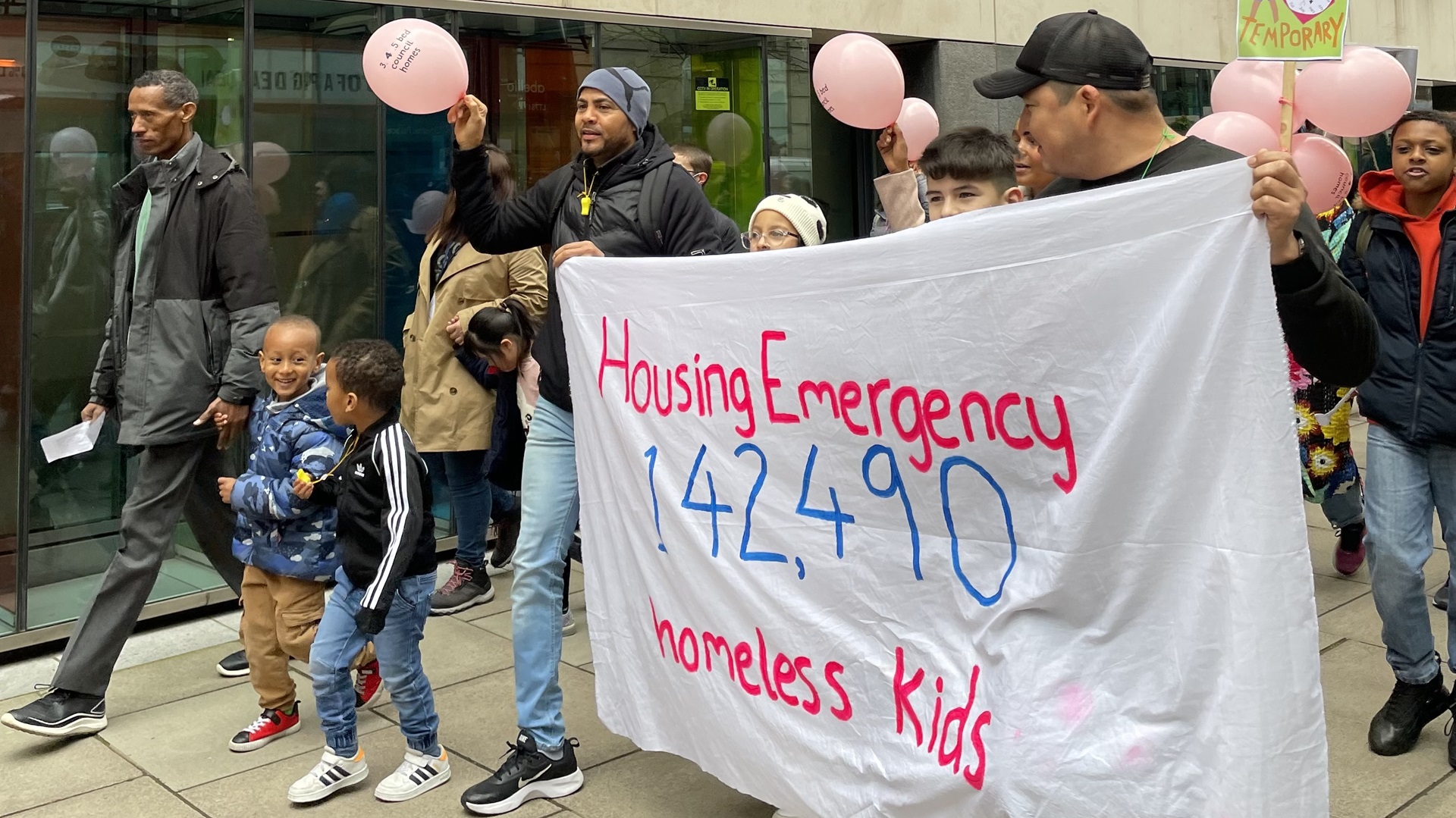Christa Maciver, head of research, policy and communications at temporary accommodation charity Justlife, also called for leaders to create a strategy to tackle the crisis. She said: “We hope all political parties seize this chance and demonstrate that they will prioritise tackling this as an emergency. People experiencing homelessness deserve better.”
The number of households who needed council workers to step in after they were threatened with homelessness because of a no-fault eviction notice is also higher than at any other point at 25,910 in 2023.
A total of 5,790 households faced becoming homeless following a Section 21 notice in the three months before Christmas alone, up almost 11% when compared to the same quarter last year.
The figures comes just days after the Renters Reform Bill – the legislation set to stop landlords from being able to evict tenants without giving a reason – returned to parliament.
The bill passed through the House of Commons facing accusations that it has been “watered down” with a number of amendments to “appease landlords”. There is still no date for no-fault evictions to be scrapped more than five years after the Conservative government first promised to do so.
Darren Baxter, principal policy adviser at Joseph Rowntree Foundation, said the government statistics show why rent reforms are needed to prevent homelessness.
Advertising helps fund Big Issue’s mission to end poverty
“The continued increase in homelessness – now at a record high – shows the human cost of an under-regulated, insecure and unaffordable private rented sector. Evictions are on the rise, while more and more households are forced to live in temporary accommodation – in some cases for years,” said Baxter.
“Homelessness will continue to rise unless the government starts to take the private renting crisis seriously and makes significant changes to the Renters Reform Bill.”
That view was echoed by fellow members of the Renters Reform Coalition.
Tom Darling, the group’s campaign manager, said: “Observing this steadily spiralling crisis, it is maddening to watch the government’s approach to the Renters Reform Bill, one of the key levers at its disposal to tackle this crisis.”
Ben Twomey, chief executive of Generation Rent, called for tenants to be given four months’ notice that they face an eviction rather than the current two months to prevent homelessness.
“Renters need more time to move than the two months we currently get, and landlords who are uprooting their tenants’ lives should support us with the costs of moving,” he said.
Advertising helps fund Big Issue’s mission to end poverty
“That will both reduce the stress and hardship of an unwanted move, and reduce the homelessness epidemic that is currently shredding councils’ finances.”
Following the Renters Reform Bill’s passage in parliament last week, a government spokesperson said: “Our commitment to scrap Section 21 no-fault evictions as soon as possible is unchanged.
“We have always said we will give six months notice before ending Section 21 for all new tenancies. In addition, we have committed to ensuring improvements in the courts service are rapidly implemented before extending this abolition to all existing tenancies.”
Councils will receive in excess of £1bn over three years through the homelessness prevention grant to prevent evictions and offer financial support for people to find a new home and move out of temporary accommodation.
Do you have a story to tell or opinions to share about this? We want to hear from you. Get in touch and tell us more.










